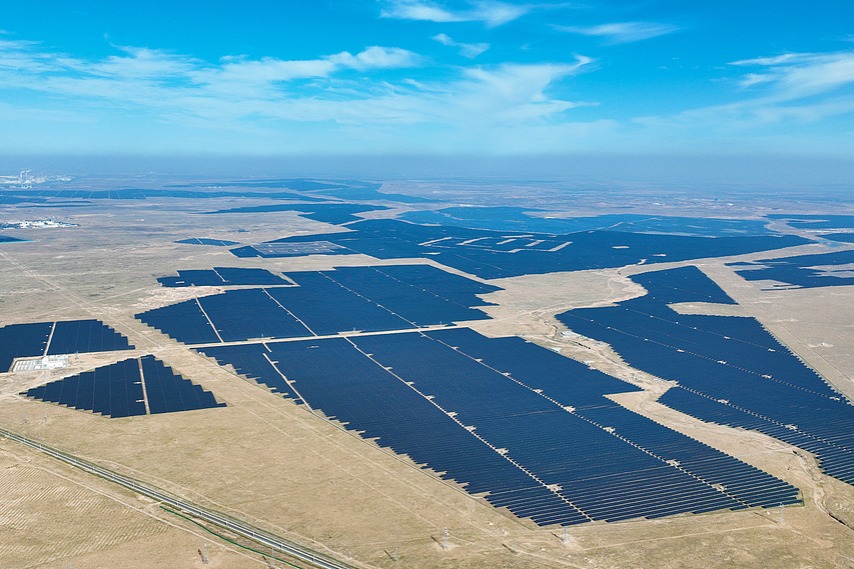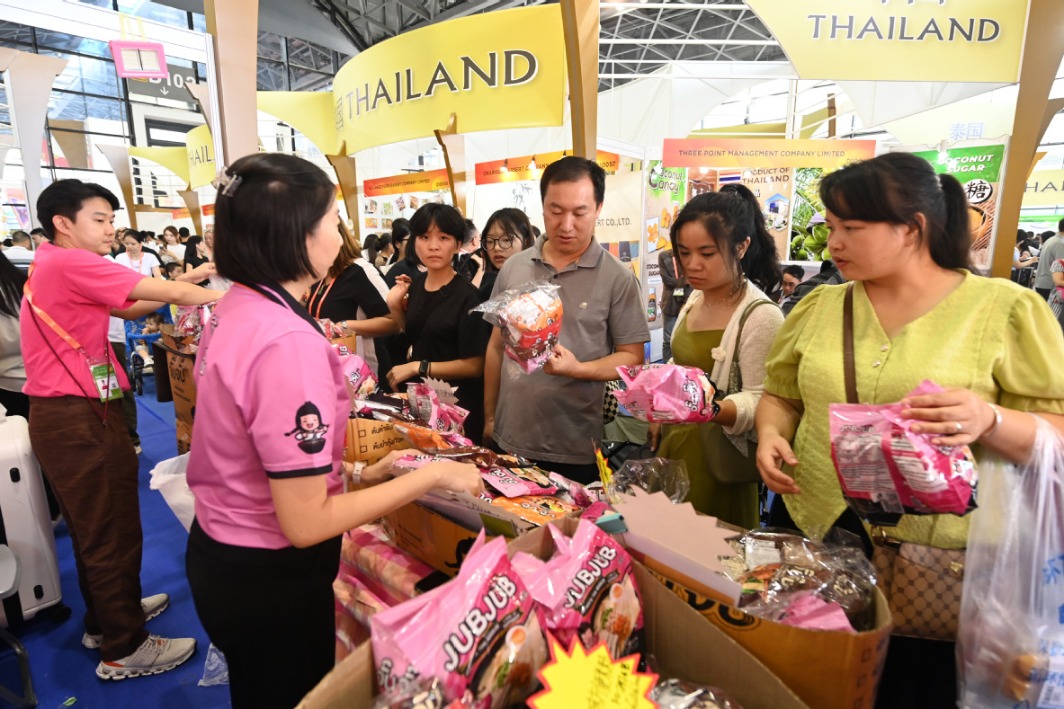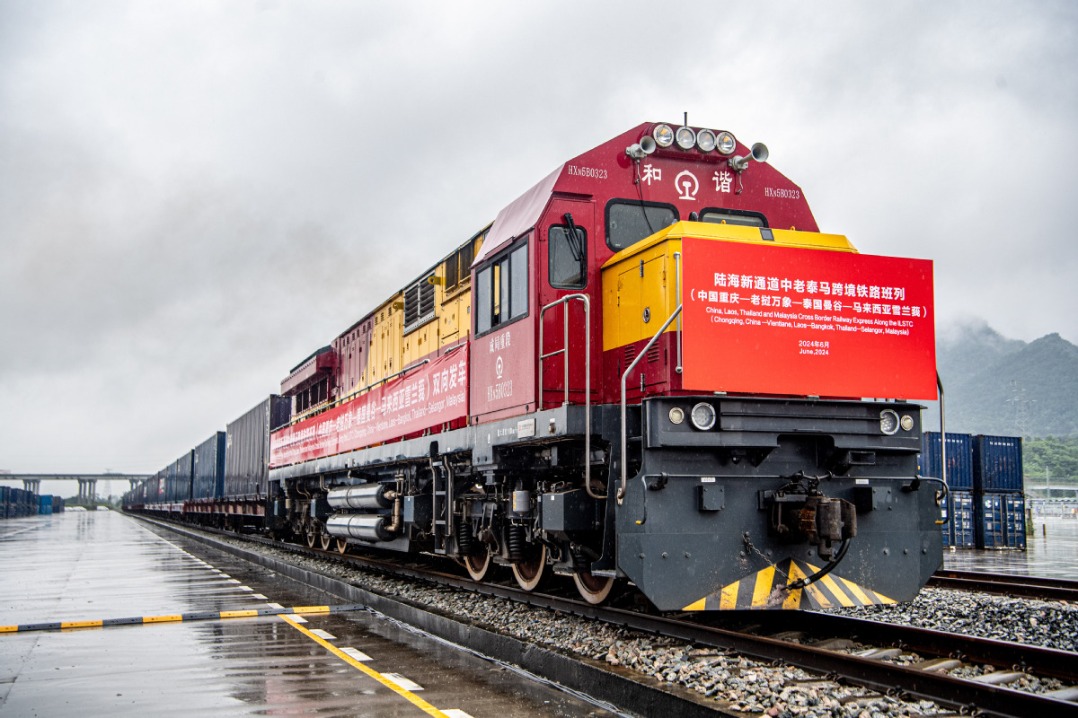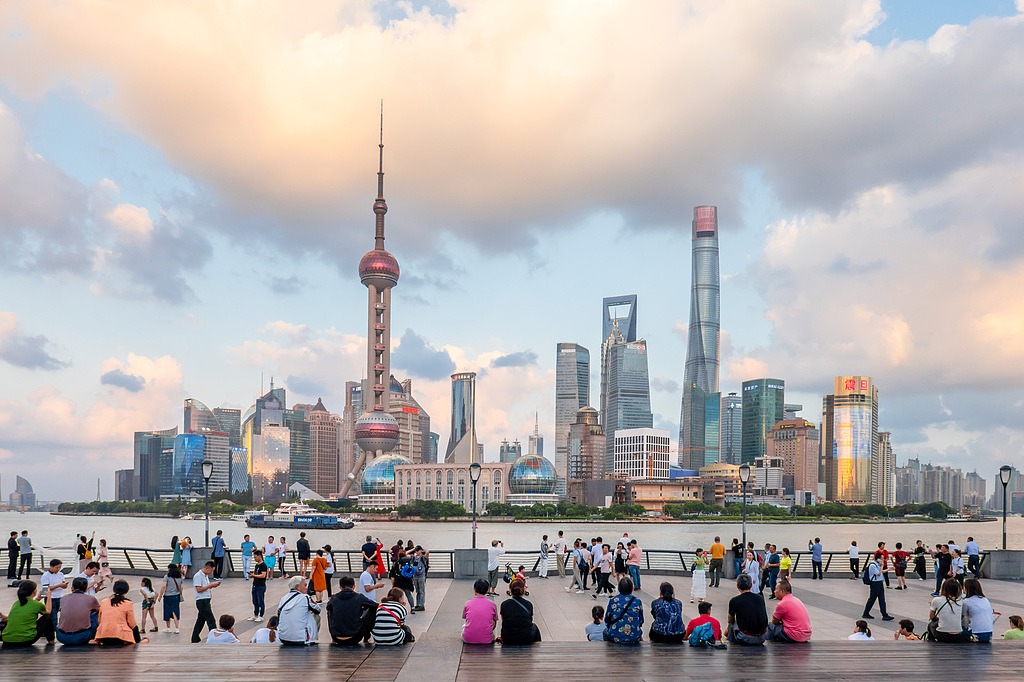Taiyuan Heavy Industry forges ahead

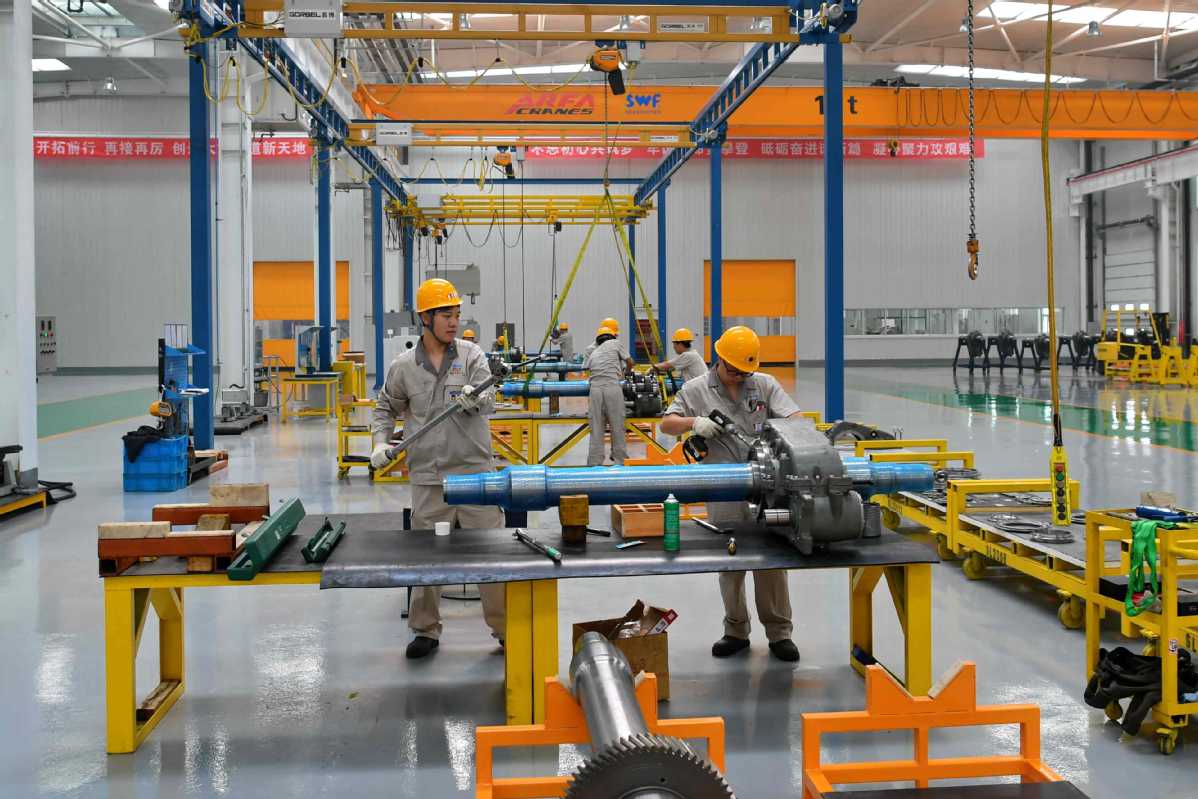
Shanxi machinery firm is using tech innovation to enhance efficiency, improve product quality
In Taiyuan Heavy Industry Co Ltd of Shanxi province, forged steel wheels for transit rails are produced at 52 seconds per strip by the company's advanced manufacturing equipment, ready for shipment to more than 50 countries and regions.
Monthly output of forged steel wheels for transit rails has hit 40,000 units to date. But 20 years ago, the steel company only made a few hundred units - a productivity rate that saw the company lose several million yuan just in the transit rail sector.
Supported by technological advancement, Shanxi's major manufacturer is on a fast track, developing high-end production systems and expanding its global markets.
Wang Chuangmin, Party secretary and chairman of Taiyuan Heavy Industry, said the company has seen enhanced production efficiency and improved product quality thanks to technology innovation.
"Taiyuan Heavy Industry is forging ahead with innovations to move up the global value chain," Wang said.
In March last year, the company achieved daily and monthly production of 1,612 units and 41,180 units respectively for forged steel wheels, a record in the industry on a global scale, the company said.
Meanwhile, improved product quality has helped Taiyuan Heavy Industry gain access to overseas markets.
The company has passed quality checks under industrial standards set by North America's Association of American Railroads, the European Union's Technical Specifications for Interoperability, and Germany's Deutsche Bahn.
"Taiyuan Heavy Industry's improved product quality has helped the company gain access to numerous overseas markets," said Wei Huacheng, deputy director of the tech center at Taiyuan Heavy Industry Railway Transit Equipment Co Ltd, a subsidiary of the company.
"With enhanced production efficiency and improved product quality, our products are welcomed in global markets," said Xuan Jun, general manager of Taiyuan Heavy Industry Railway Transit Equipment.
More than 50 percent of Taiyuan Heavy Industry's wheels products are for export. The company has sold transit rail related products to over 50 countries and regions. It has recently established three overseas branches in Southeast Asia, Central Asia, and West Asia to meet growing demand from overseas markets.
"Our company is stepping up efforts to expand our global sales network to tap the growing market," said Wang.
According to him, the company is also optimizing its structure to facilitate the establishment of a research and development system, a sales network, a service providing network, a new production mechanism, and is working to improve its management.
Such moves are important aspects of the company's reform in the new era for higher business growth, Wang Xiaodong, secretary of the executive board, said in a recent interview.
"Taiyuan Heavy Industry will continue deepening its structural reform through those moves, alongside other measures, such as restructuring business units to make better use of resources," Wang Xiaodong said.
In the first eight months, overseas orders to Taiyuan Heavy Industry surpassed 1.1 billion yuan ($155 million).
The main products for export were transit rail axles, cranes, and excavators, according to the company. The company has also seen a slight increase in exports of wear-resistant parts and fan shafts.
From January to August, the company's major markets for export were Russia, the United States and India. Its total exports to Russia has reached 420 million yuan.
Zhou Minliang, an economist specializing in regional economies at the Institute of Industrial Economics, said Shanxi's rich energy resources have given manufacturers an edge in development. The province is also launching favorable policies to foster a good business environment to companies like Taiyuan Heavy Industry.
"Such attempts from companies can also help Shanxi transform into a tech-driven manufacturing hub, a more sustainable way of development compared with the past when the province relied heavily on the coal industry," Zhou said.
















